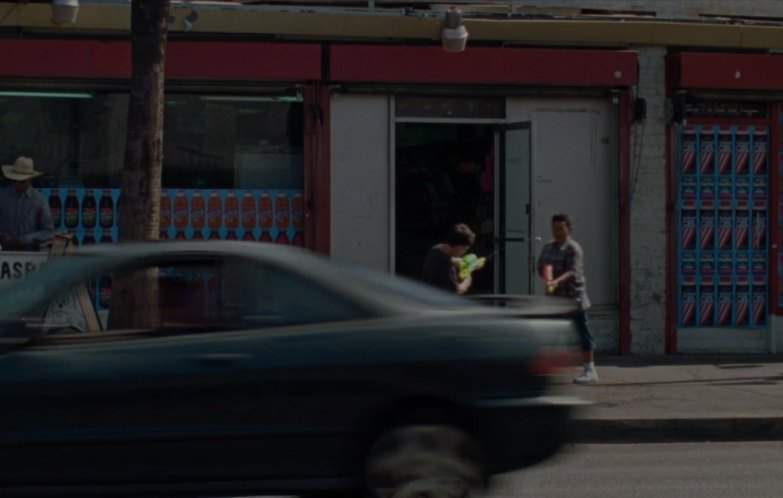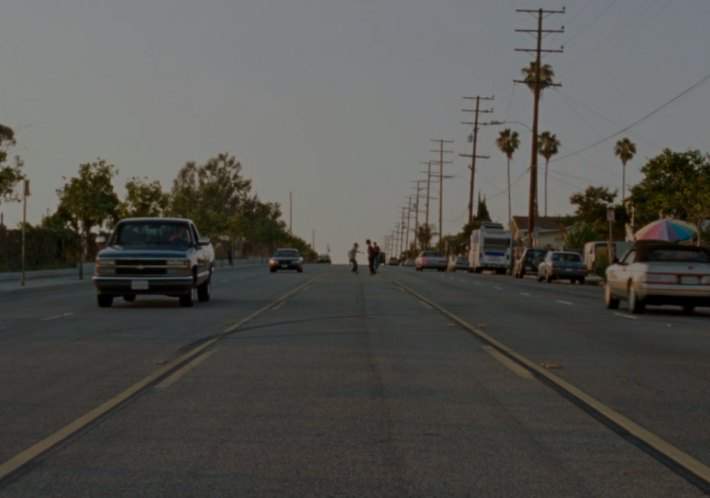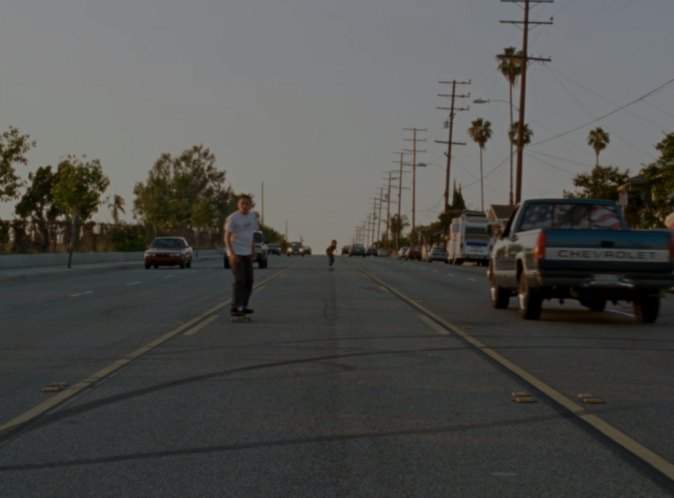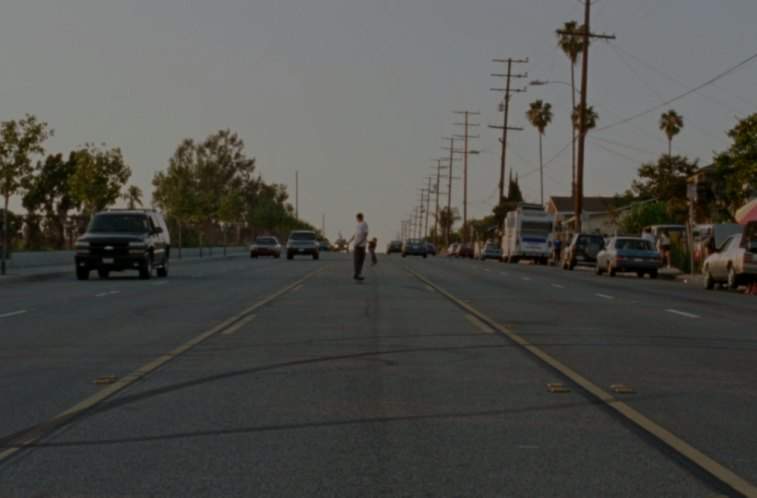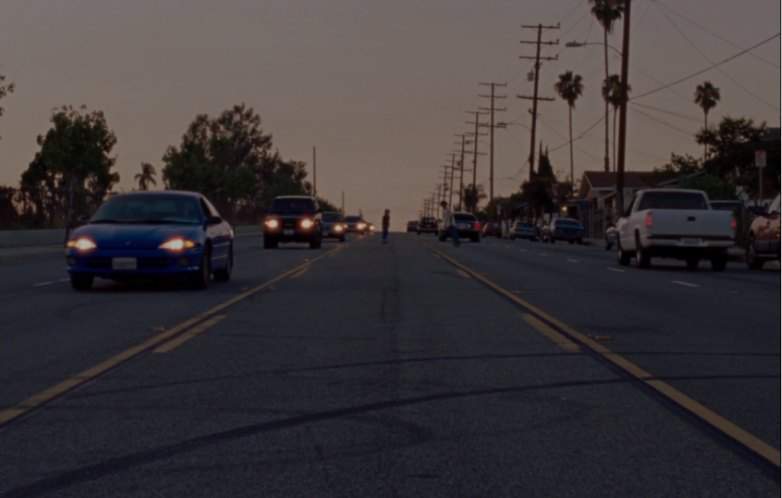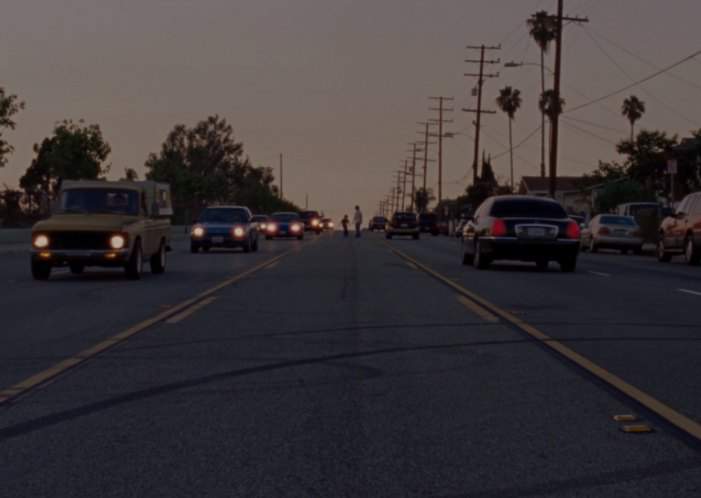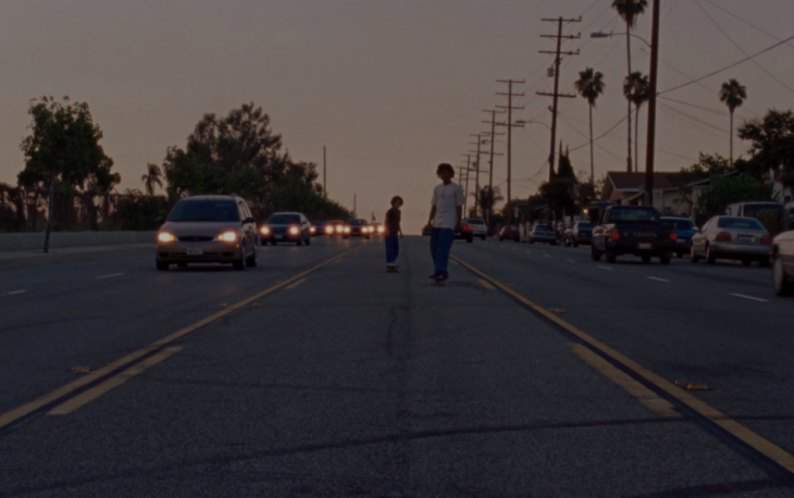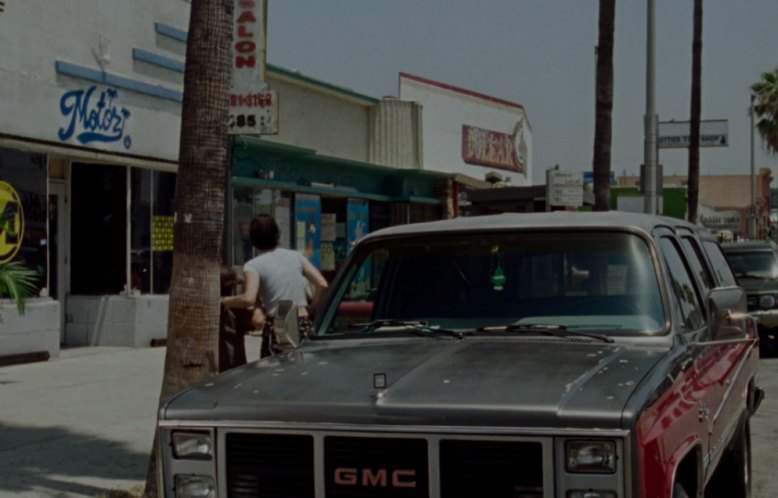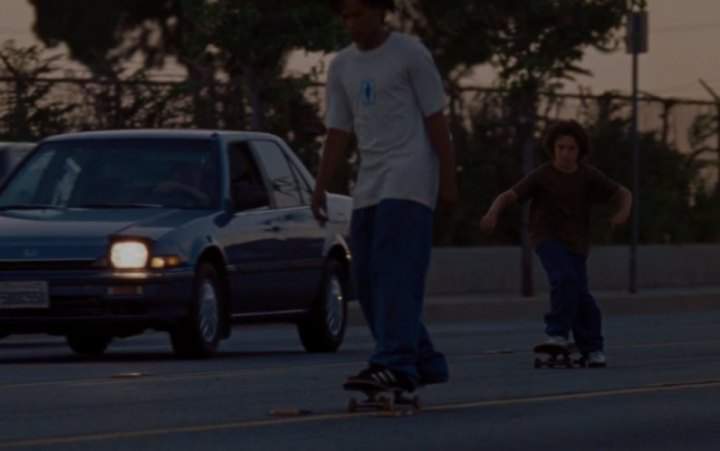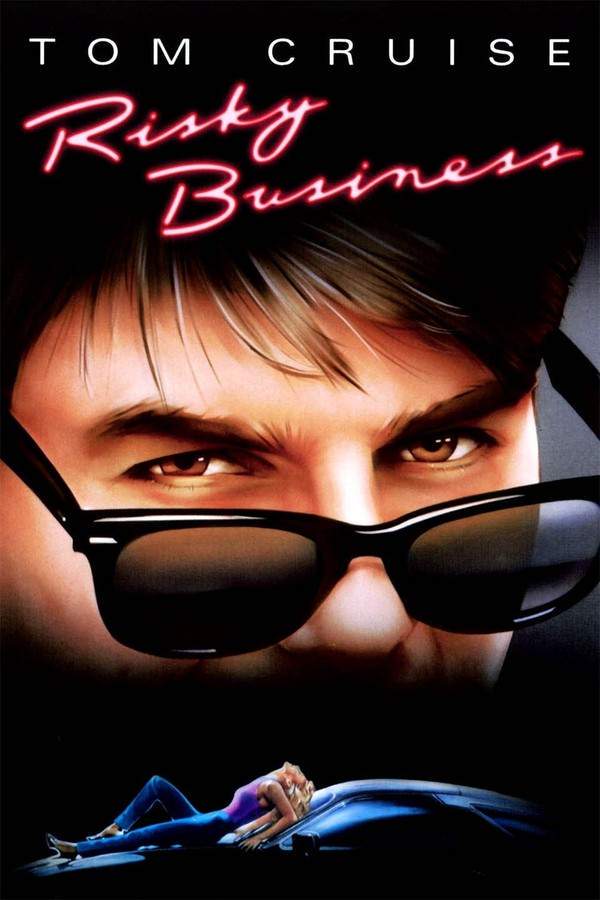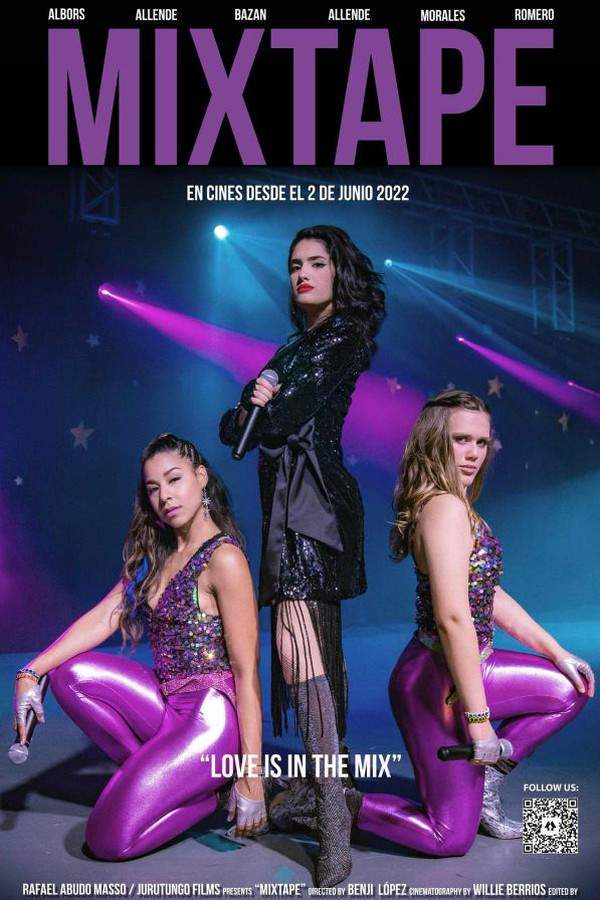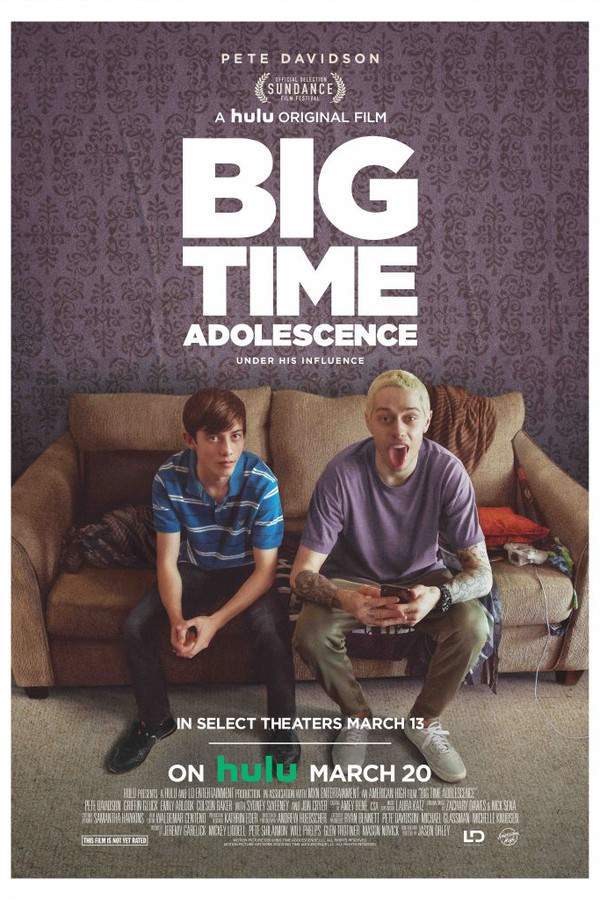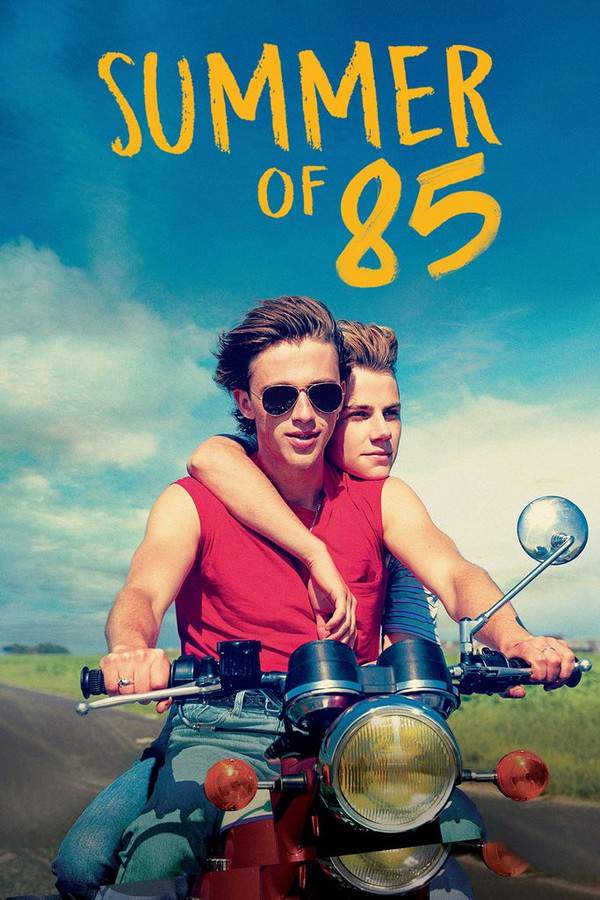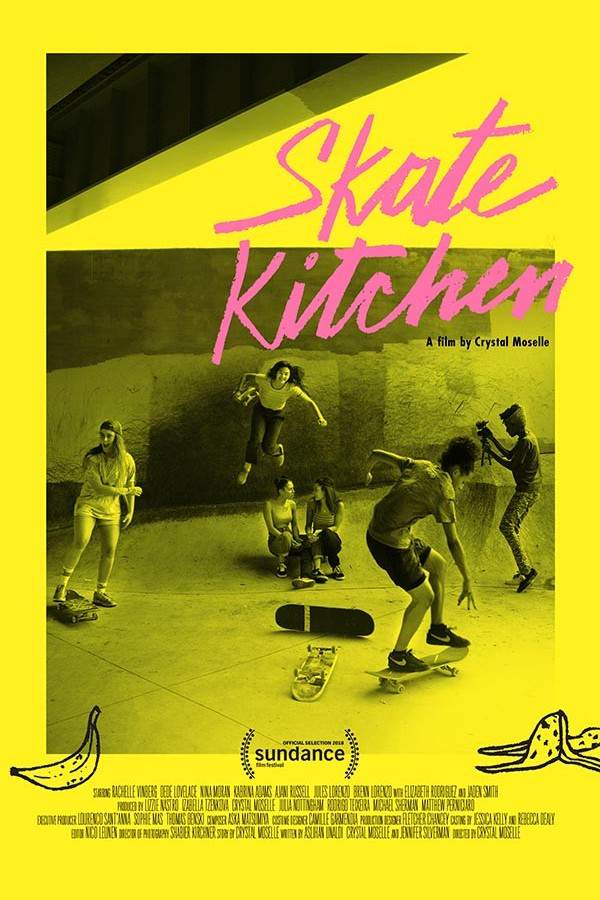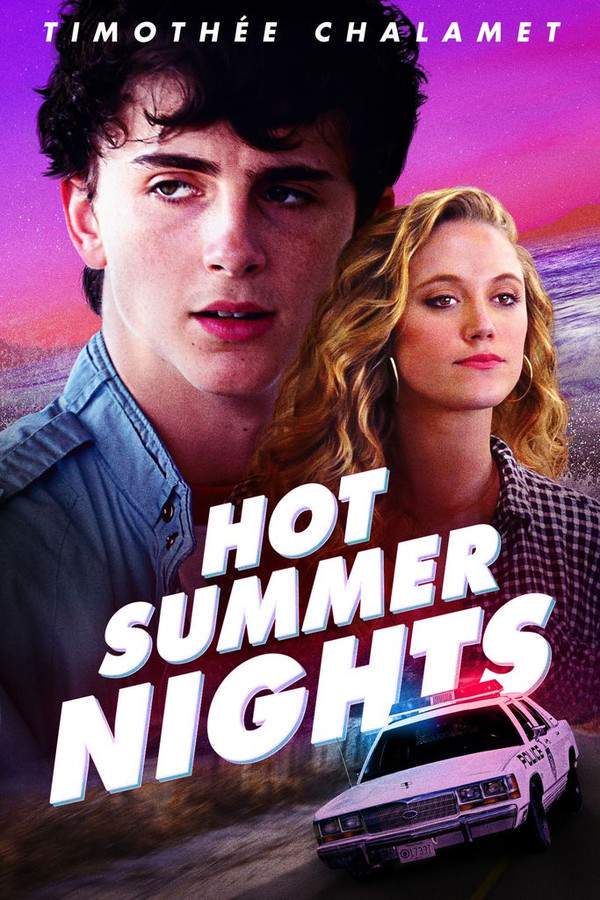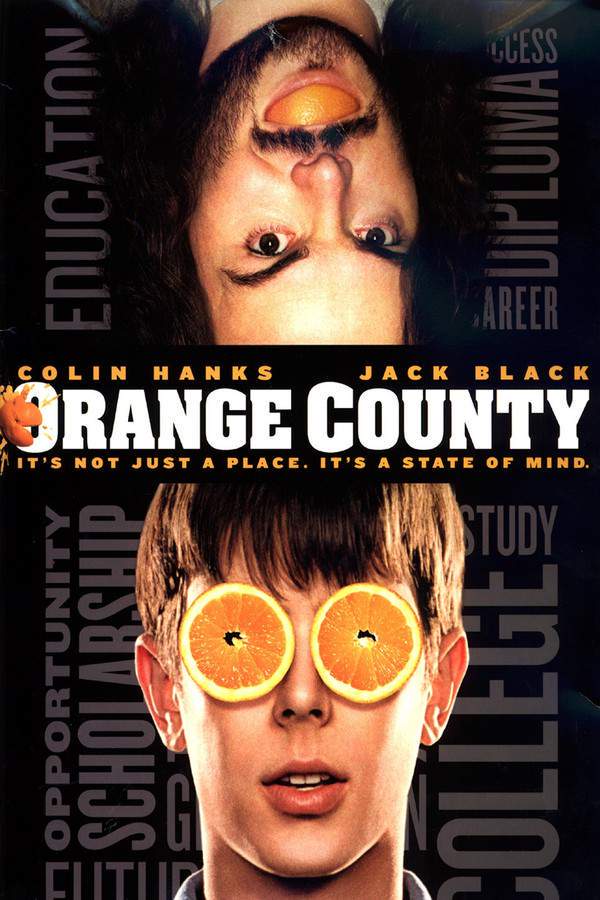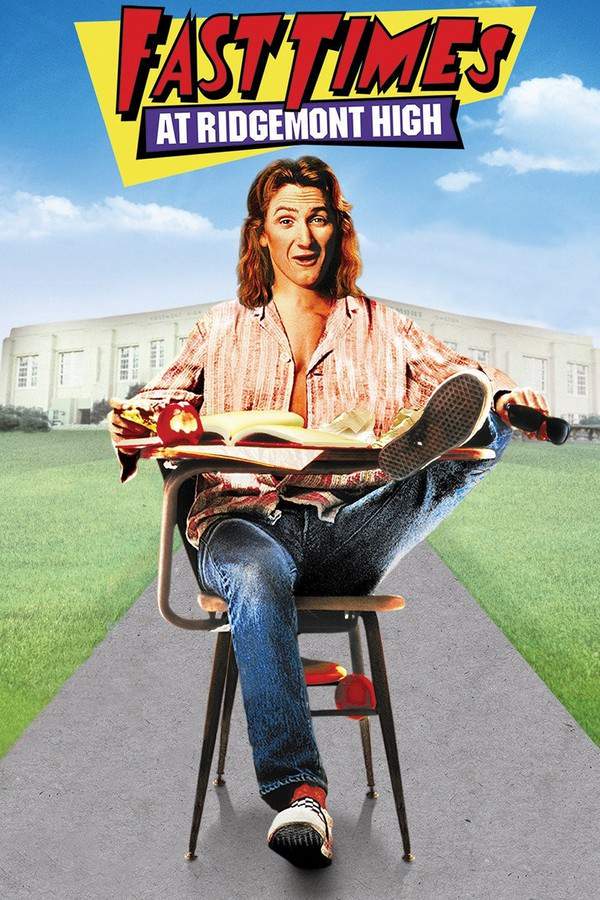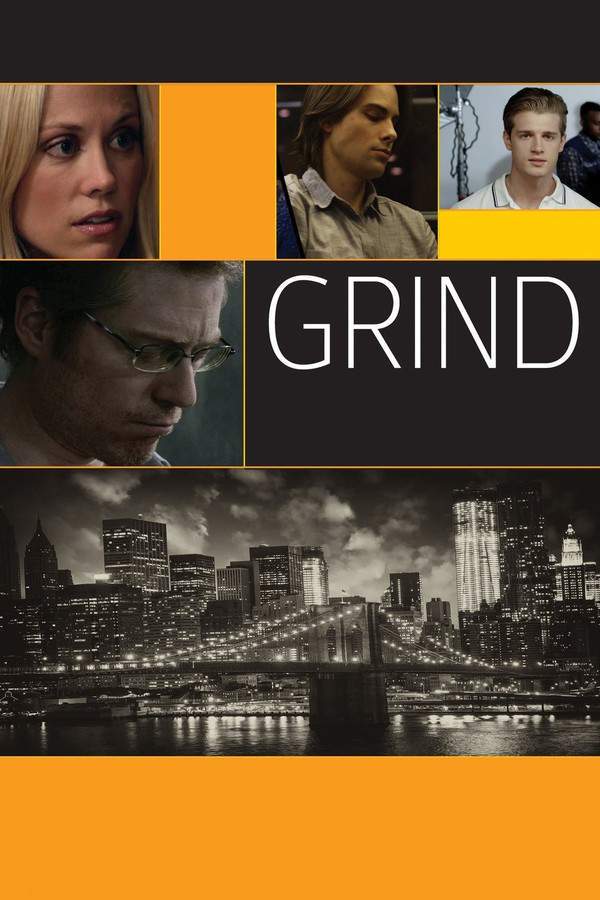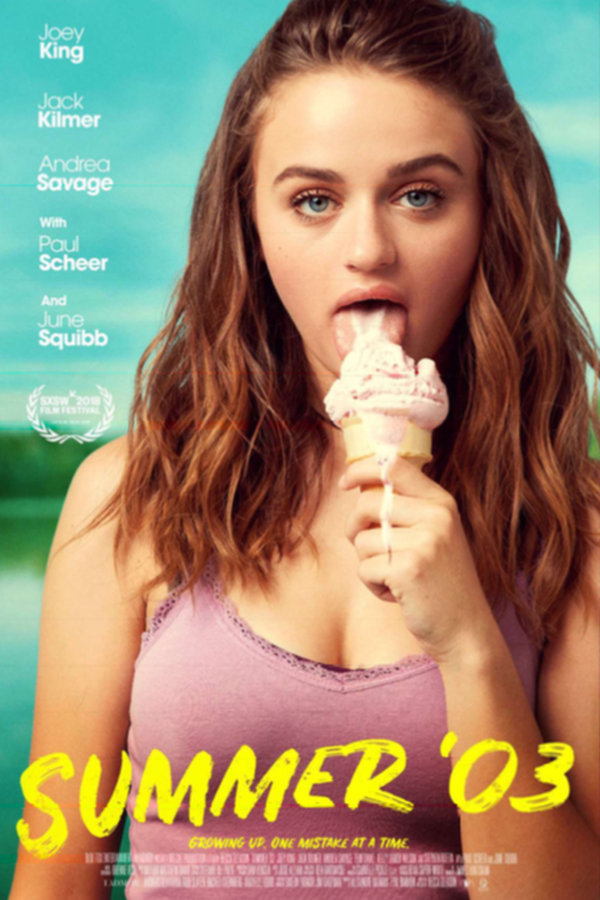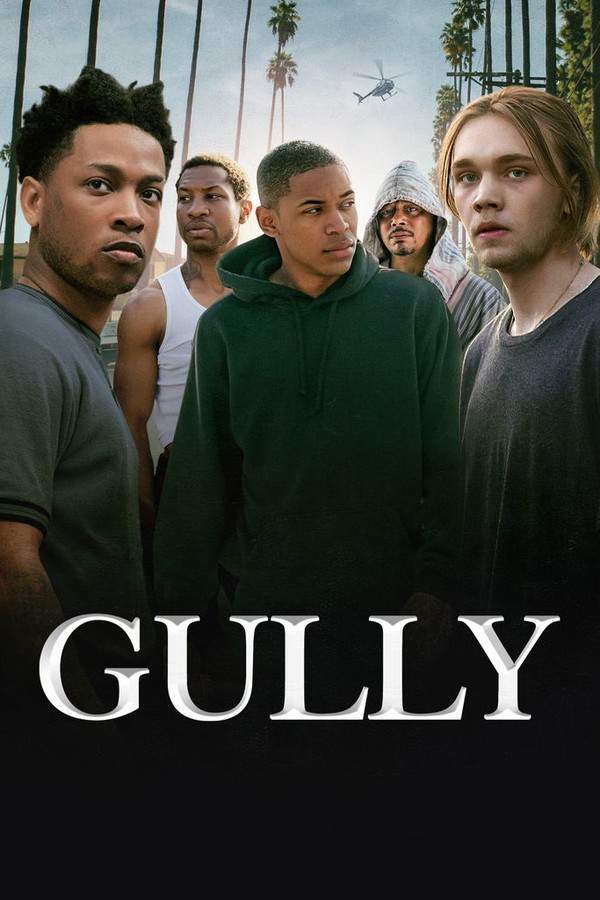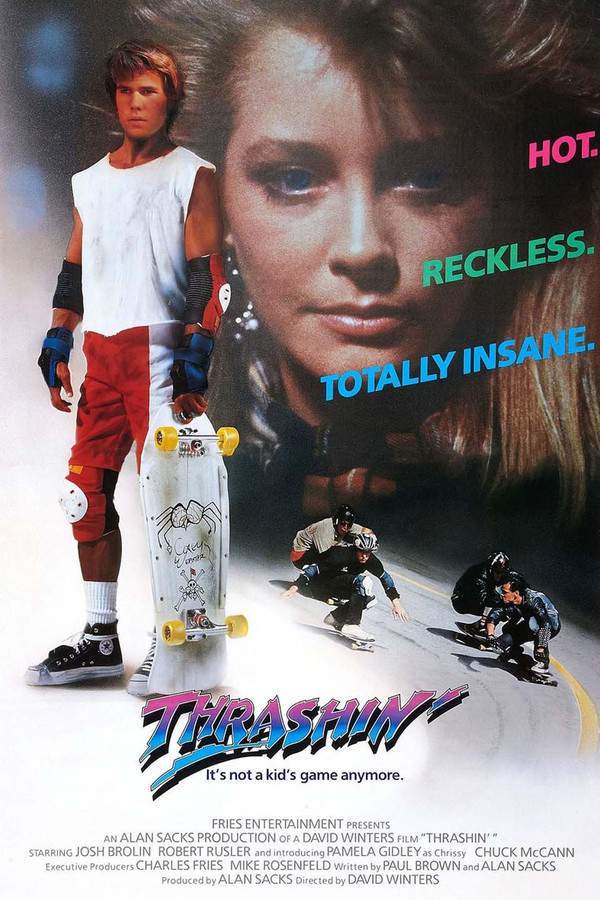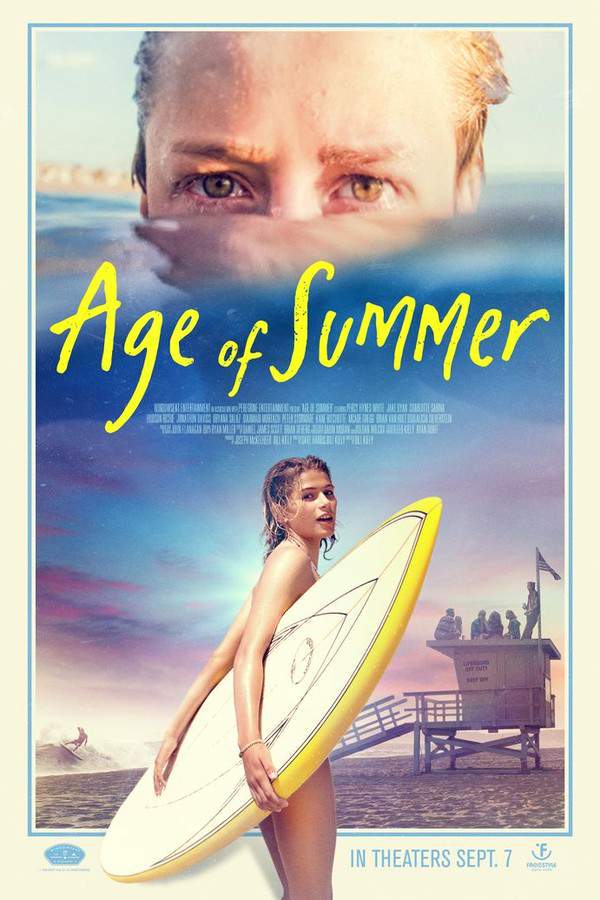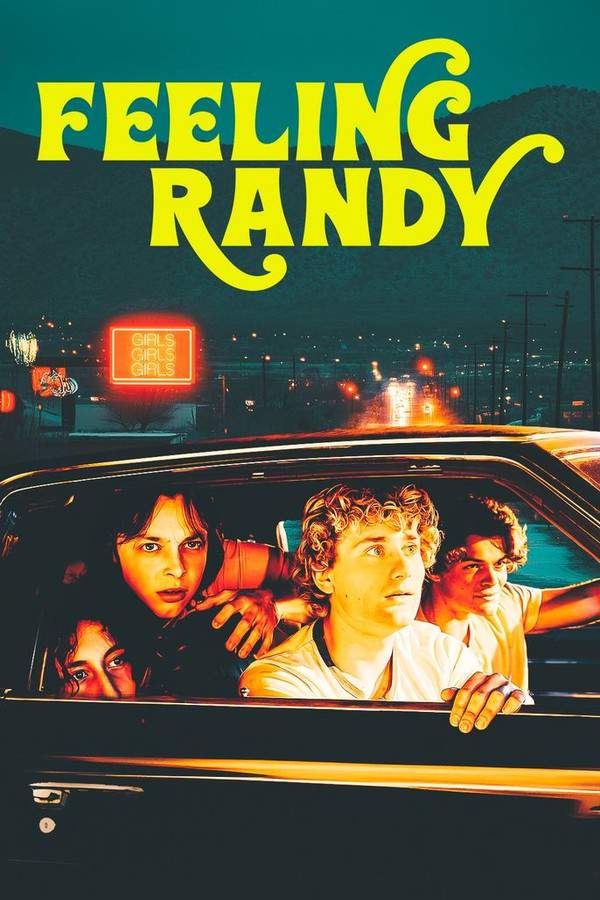Mid90s 2018
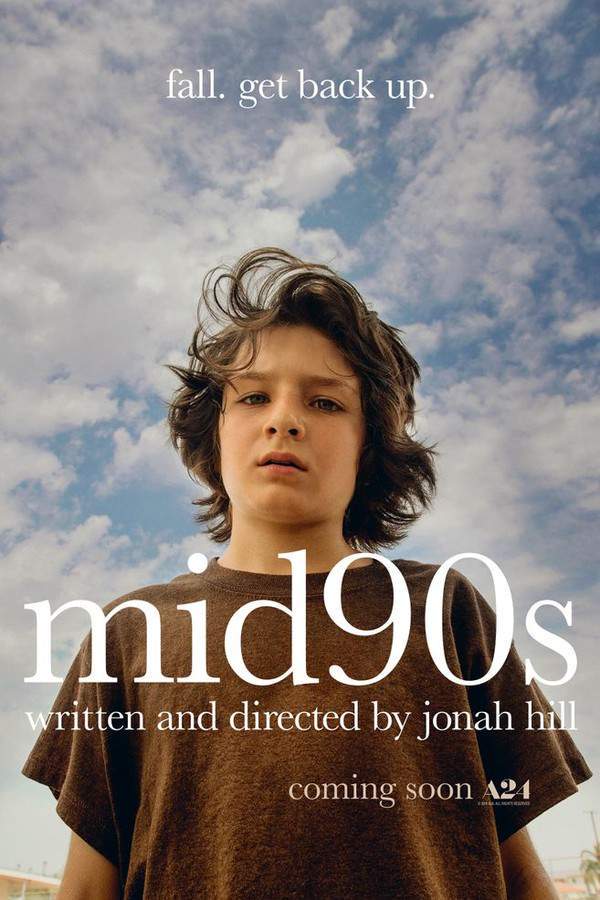
In 1990s Los Angeles, thirteen-year-old Stevie escapes a difficult home life by spending his summer at a local skate shop. There, he finds camaraderie and mentorship with a group of older, more experienced skaters, learning about life, friendship, and navigating the challenges of adolescence along the way. He quickly becomes immersed in the skateboarding scene, finding a place where he truly belongs.
Does Mid90s have end credit scenes?
No!
Mid90s does not have end credit scenes. You can leave when the credits roll.
Meet the Full Cast and Actors of Mid90s
Explore the complete cast of Mid90s, including both lead and supporting actors. Learn who plays each character, discover their past roles and achievements, and find out what makes this ensemble cast stand out in the world of film and television.

Jerrod Carmichael

Lucas Hedges
Ian

Katherine Waterston
Dabney
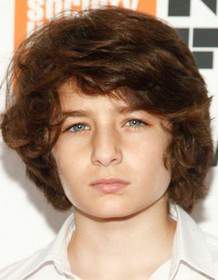
Sunny Suljic
Stevie

Alexa Demie
Estee

Cici Lau

Di Vinci SanTana Guthrie

Fig Camila Abner
Angela

Gio Galicia
Ruben

Jax Malcolm

Kasey Elise

Lauren B. Mosley

Liana Perlich
Teresa

Margaret Newborn

Na-kel Smith
Ray

Olan Prenatt
Fuckshit

Ryder McLaughlin
Fourth Grade

Stephane Nicoli
External Links and Streaming Options
Discover where to watch Mid90s online, including streaming platforms, rental options, and official sources. Compare reviews, ratings, and in-depth movie information across sites like IMDb, TMDb, Wikipedia or Rotten Tomatoes.
Ratings and Reviews for Mid90s
See how Mid90s is rated across major platforms like IMDb, Metacritic, and TMDb. Compare audience scores and critic reviews to understand where Mid90s stands among top-rated movies in its genre.

The Movie Echo Score
Mid90s succeeds most clearly as an evocative period piece driven by strong visual and auditory choices but is tempered by uneven narrative and character exploration. The film’s commitment to capturing mid-90s skate culture and nostalgia shines through consistent production design, evocative music references, and measured direction. However, plot coherence and character depth fluctuate, with some interpersonal dynamics feeling underdeveloped. Overall, the movie leaves a generally positive impression rooted in its authentic aesthetic and youthful energy despite its narrative shortcomings.
The Movie Echo Score Breakdown for Mid90s

Art & Craft
The film’s art and craft stand out through confident direction and striking cinematography that evoke the era. Production design delivers an understated color palette of board graphics and vintage decor, while editing maintains a brisk pace even when the story lags. Occasional fisheye sequences underscore the skate culture aesthetic without overpowering the narrative. Overall, the technical craftsmanship gives Mid90s a consistent and engaging visual identity.

Character & Emotion
When it comes to character and emotion, performances are a clear strength, notably from the lead actor whose portrayal conveys genuine longing and vulnerability. Supporting roles offer warmth and camaraderie, but several secondary figures lack fully realized arcs, limiting emotional resonance. Chemistry within the skate crew feels authentic in scenes of shared risk and laughter, though some relationships end without sufficient payoff. In sum, acting quality is high even as depth remains uneven.

Story & Flow
In terms of story and flow, Mid90s presents an intermittently engaging coming-of-age journey punctuated by moments of nostalgia rather than a fully cohesive plot. Pacing shifts between energetic skate sequences and slower, introspective beats, occasionally leading to a detached viewing experience. Originality emerges through cultural references but overall narrative stakes feel familiar and sometimes predictable. As a result, the film offers glimpses of promise but does not sustain consistent engagement throughout.

Sensory Experience
The sensory experience of Mid90s is notably immersive, with a soundtrack filled by period-specific tracks and sound design that accentuates skateboarding sounds. Visual style employs a muted palette accented by vibrant board decals and lens choices that capture the era’s texture. Sound cues—such as ambient street noises and music cues—blend cohesively with each scene, reinforcing the film’s authentic atmosphere. Overall, the sensory elements coalesce into a vivid depiction of mid-90s culture.

Rewatch Factor
Regarding rewatch factor, Mid90s holds appeal for audiences drawn to 1990s nostalgia and skate culture authenticity. Instances of warmth, humor, and standout performances invite repeat viewings, especially for those with personal ties to the era. However, viewers seeking intricate narratives or fully realized character journeys may find limited incentive for multiple viewings. In conclusion, the film offers respectable replay value grounded in its cultural textures and emotional highlights.

66
Metascore
7.6
User Score


81%
TOMATOMETER

81%
User Score

7.4 /10
IMDb Rating

75
%
User Score

3.8
From 19K fan ratings

4.00/5
From 1 fan rating
Take the Ultimate Mid90s Movie Quiz
Challenge your knowledge of Mid90s with this fun and interactive movie quiz. Test yourself on key plot points, iconic characters, hidden details, and memorable moments to see how well you really know the film.
Mid90s Movie Quiz: Test your knowledge about the film 'Mid90s' and its characters, themes, and events.
What year is the film 'Mid90s' set in?
1996
1995
1994
1997
Show hint
Awards & Nominations for Mid90s
Discover all the awards and nominations received by Mid90s, from Oscars to film festival honors. Learn how Mid90s and its cast and crew have been recognized by critics and the industry alike.
24th Critics' Choice Awards 2019

34th Film Independent Spirit Awards 2019
Best Editing
Full Plot Summary and Ending Explained for Mid90s
Read the complete plot summary of Mid90s, including all major events, twists, and the full ending explained in detail. Explore key characters, themes, hidden meanings, and everything you need to understand the story from beginning to end.
In 1996, Stevie, a 13-year-old boy living in Palms, Los Angeles, navigates the challenges of a troubled home life, marked by a physically abusive older brother, Ian, and a single mother, Dabney. One fateful day, Stevie’s curiosity draws him to Motor Avenue Skateshop, where he is captivated by the lively banter and camaraderie of the skaters outside. Enthralled, he returns the next day and, through a trade with Ian, acquires a skateboard. At the shop, he forms a bond with young skater Ruben, who introduces him to an eclectic group of friends: the charming leader Ray, the boisterous Fuckshit played by [Olan Prenatt], and the more reserved Fourth Grade portrayed by [Ryder McLaughlin]. Despite his lack of experience, Stevie is eager to fit in and emulate their reckless behavior and anti-social attitudes.
During a conversation, Ray dubs Stevie “Sunburn,” signaling his acceptance into the group. However, this newfound camaraderie stirs feelings of jealousy in Ruben. As Stevie attempts an ambitious skateboard trick between two rooftops, he suffers a head injury, prompting concern from Dabney about his reckless choices and his association with the group. Nevertheless, Stevie is resolute in his decision to remain part of this new clique. Tensions rise when Ian confronts Fuckshit, yet he backs down before a potential fight can erupt. As Stevie delves deeper into this lifestyle, he starts to smoke, drink, and even experiments with marijuana.
At a party, he has his first kiss and a sexual encounter with Estee, an older teenage girl, highlighting the significant age gap between them. The situation escalates when a drunken confrontation with Ian leads to a violent altercation. In the aftermath, feeling isolated and despondent, Stevie resorts to self-harm, attempting to asphyxiate himself with a SNES controller cord. The following day, Dabney forbids him from associating with his friends, only to have Stevie defiantly reject her orders. Alienated from both his mother and brother, Stevie finds solace behind the skate shop, where Ray offers him comforting words about their shared hardship. Ray shares the struggles that his friends face: Fourth Grade’s poverty, Ruben’s abusive home life, Fuckshit’s worsening behavior, and his own grief over the loss of his younger brother. Eventually, Ray takes Stevie on a nighttime skate adventure, and they find themselves falling asleep beneath the stars at the Santa Monica Courthouse.
A party at the shop subsequently unfolds, with Ray hoping to turn his skating passion into a career by courting potential sponsors. However, Fuckshit, under the influence, tries to undermine Ray’s credibility. After a night of heavy drinking, Stevie and Ruben’s friendship deteriorates to the point of physical confrontation. Disheartened by their group’s lack of discipline, Ray asks everyone to leave. However, a persistent Fuckshit convinces the group to head to another party. In a moment of recklessness, Fuckshit crashes the car during a chaotic drive, resulting in Stevie being knocked unconscious and rushed to the hospital.
When he awakes, Stevie finds Ian by his side, offering him solace in the form of orange juice. As Dabney arrives, she sees Stevie’s friends camped in the waiting room, prompting her to invite them to his room. Moved by their solidarity, a glimmer of reconciliation appears on the horizon. Meanwhile, Fourth Grade pulls out a camera to share a documentary-style film of their escapades, titled “Mid90s,” capturing the essence of their youthful adventure.
Uncover the Details: Timeline, Characters, Themes, and Beyond!

Coming soon on iOS and Android
The Plot Explained Mobile App
From blockbusters to hidden gems — dive into movie stories anytime, anywhere. Save your favorites, discover plots faster, and never miss a twist again.
Sign up to be the first to know when we launch. Your email stays private — always.
Watch Trailers, Clips & Behind-the-Scenes for Mid90s
Watch official trailers, exclusive clips, cast interviews, and behind-the-scenes footage from Mid90s. Dive deeper into the making of the film, its standout moments, and key production insights.
Cars Featured in Mid90s
Explore all cars featured in Mid90s, including their makes, models, scenes they appear in, and their significance to the plot. A must-read for car enthusiasts and movie buffs alike.
Mid90s Themes and Keywords
Discover the central themes, ideas, and keywords that define the movie’s story, tone, and message. Analyze the film’s deeper meanings, genre influences, and recurring concepts.
Mid90s Other Names and Titles
Explore the various alternative titles, translations, and other names used for Mid90s across different regions and languages. Understand how the film is marketed and recognized worldwide.
Similar Movies To Mid90s You Should Know About
Browse a curated list of movies similar in genre, tone, characters, or story structure. Discover new titles like the one you're watching, perfect for fans of related plots, vibes, or cinematic styles.
Quick Links: Summary, Cast, Ratings, More

What's After the Movie?
Not sure whether to stay after the credits? Find out!
Explore Our Movie Platform
New Movie Releases (2025)
Famous Movie Actors
Top Film Production Studios
Movie Plot Summaries & Endings
Major Movie Awards & Winners
Best Concert Films & Music Documentaries
Movie Collections and Curated Lists
© 2025 What's After the Movie. All rights reserved.















